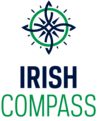Corporate Finance

Corporate Finance
Corporate Finance & Accounting is broadly defined as financial matters concerning a corporation. The Finance and Accounting departments of a corporation are directly involved with managing the capital associated with delivering the product and/or service. A career in corporate finance means you would work for a company to help it find money to run the business, grow the business, make acquisitions, plan for its financial future and manage any cash and other assets.
Corporate finance and accounting professionals are responsible for managing a business's money -- forecasting where it will come from, knowing where it is, and helping its managers decide how to spend it in ways that will ensure the greatest return. They look for ways to free up capital, increase profitability, and decrease expenses. They'll look at the best growth path for the company, whether that's through acquiring other companies or re-investing in the business to expand internally.
Job Title Examples:
- Financial Analyst
- Cost Analyst
- Pricing Analyst
- Credit Analyst
- Benefits Analyst
- Real Estate
- Investor Relations
- Treasury
Skills Needed:
- Problem solving and analytical skills
- Research skills
- Critical thinking skills
- Attention to detail
- Strong written and oral communication skills
- Strong quantitative background
- Time management and ability to multitask
Find Opportunities

Using IrishCompass, LinkedIn, and ND’s alumni association directory called myND is the best way to start on the networking front.
Job Databases:
Industry Timeline
The hiring timeline for Corporate Finance is mostly in the Fall for both full-time positions and internships. The spring time also presents some opportunities - but not nearly as much time is focused on recruiting then.
Applying and Interviewing
Resumes
Your resume will often be the first impression for a potential employer. You want to make sure that your resume is concise, direct, and specific. Ensure that your resume is tailored for the position and for the industry. Highlighting relevant coursework can demonstrate your fit for a particular position. Review our guide on resumes for more information on how to construct one.
Cover Letters
A cover letter introduces you to a potential employer. Use the position description to make specific connections between your skills and experience and what the organization is looking for in a candidate. The cover letter should be concise and well-written—if a potential employer reads your cover letter and is intrigued, they will then read your resume. Your cover letter should not repeat your resume verbatim, but enhance it. Together the cover letter and resume can help land you an interview. Review our guide on cover letters for more information on how to construct one.
Interviewing
Most interviews will contain a mixture of resume based questions (questions about your past experience) and behavioral based questions (your ability to handle prospective situations at work). Review our guide on common interview questions.
Preparation is extremely important for interviews. Research the company/organization, current and previous projects they’ve worked on, and even the people that you’re interviewing with. This will not only help provide talking points but will show your knowledge and genuine interest in the position. Utilize our resources on how to best prepare yourself to excel in your interview.
Online Resources
- Corporate Finance Institute
- Mergers and Inquisitions
- Careers in Corporate Finance
- Efinancial Careers
Suggested Reading:
Professional Associations:
- Certified Financial Planners Board of Standards
- CFA Institute
- Insurance Information Institute
- Financial Industry Regulatory Authority
- Corporate Finance Institute
- Financial Management Association
- American Finance Association
- Association for Financial Professionals
- Securities Industry and Financial Markets Association
- American Association of Finance and Accounting
- National Association of Personal Financial Advisors
- Investment Management Consultants Association
- Investment Advisor Association
- Global Association of Risk Advisors
Campus Resources

Career Counselor:
Ray Vander Heyden
Assistant Director, Accounting, Actuarial Science, Corporate Finance, Insurance, Real Estate
Employer Examples:
- Amazon
- Disney
- Microsoft
- Procter & Gamble
- Stryker
- Walmart
Join Handshake:
Personalize your feed, explore your curiosities, and get updates that matter to you. Handshake is a dynamic system that works to match students with the most relevant resources and opportunities offered by our office including:
• Access to personalized job recommendations – This is based on major, career interests, and profile information such as skills and experiences. When students fill out their profile, they’ll be able to see jobs and internships that match their interests and skills.
• Ability to schedule one–on-one counseling appointments – Counseling appointments are able to be scheduled through Handshake and held virtually via Zoom.
• Ability to interact with employers – Students can research contact information for local and national employers. Employers can also message students with opportunities and information.
• Connect with students across the country - Students can interact with their peers through messaging, get tips and advice, as well as network.
• Search for and apply to open positions - On Handshake, students can see jobs and internships posted specifically for them as well as employers actively recruiting from Notre Dame.